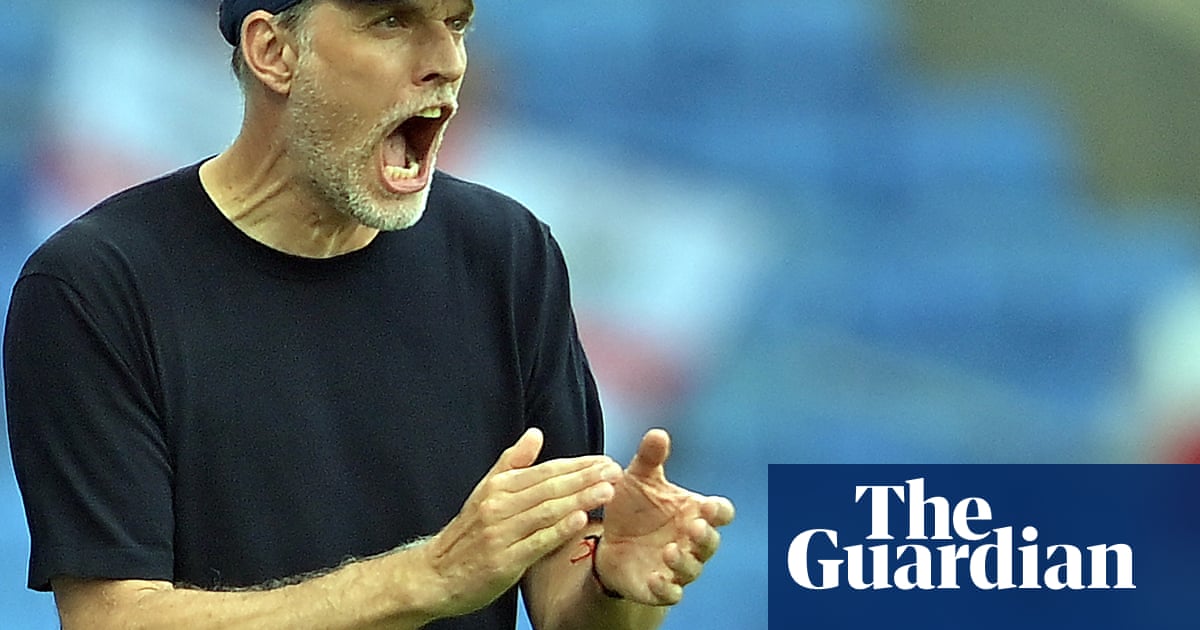Thomas Tuchel admitted England had “played with fire” in their1-0 win over Andorra, risking the concession of an equaliser and a draw that would have registered as perhaps their greatest humiliation since defeat to the USA in 1950. “I felt it was like a Cup game where the favourites don’t see the danger,” he said.England won thanks to Harry Kane’s 50th-minute goal, leaving them top of the group on nine points without having conceded a goal. No previous England manager has ever begun with three successive victories to nil, but Tuchel was clearly very unhappy with the performance.
“I didn’t like the attitude how we ended the game,” he said. “I liked the attitude how we started the game. But I didn’t like the last half hour. I think we lacked urgency and seriousness you need in a World Cup qualifier. I didn’t like the body language and it was not what the occasion needed.”
What made it all the more frustrating was that there had been no indication of that flatness in the days leading up to the game during warm-weather training in Spain. “They were enthusiastic and they showed that as a group when they were in the camp. When we started the game, the attitude was right. We wanted to play according to our principals and to the plan.
“Matches like this can become awkward when you don’t score. It can be stuck. Then it’s necessary to not get frustrated, to do the little things right. I had the feeling after 25 minutes we were a bit frustrated with the little things and everybody tried different things. Then it becomes freestyle and it gets slower. Everyone wanted the ball in to feet, and nobody was speeding the game up with runs. You need contra-movements and runs and if you don’t invest it becomes a stuck game.”
Tuchel acknowledged that fatigue at the end of the season might have been a factor, but was determined not to offer that as an excuse.
“The window is the window so no excuses. I think the clubs don’t like the window and for the national team also it’s not easy because the players are coming from a long season. We can and have to do better for the 90 minutes. We created an xG of 3 and underperformed with one goal. Normally in games like this you overperform the xG because of greater individual quality. But we didn’t. We lacked the energy. It’s the most honest thing to admit it and not talk around it.”
On a night of very few positives, the brightest element was probably the performance of Noni Madueke, who set up Kane’s goal and whose runs behind his full-back did stretchAndorra. “He was a constant threat today and he got the assist as well,” said Kane. “We need more of that – we’ve got amazing players and you need one v one quality in these games.”
Sign up toFootball Daily
Kick off your evenings with the Guardian's take on the world of football
after newsletter promotion
Tuchel had no problem with the boos at half-time and full-time, saying he understood why fans were unhappy. “The support was amazing,” he said. “They created a fantastic atmosphere for a match like this. They were underwhelmed and not happy with our performance. I don’t think we can blame them for that.”
He said he was unaware of the offensive chanting about Keir Starmer. “If it happens,” he said, “it is not acceptable, but I didn’t hear it.”
Fundamentally, though, this was a night of frustration. “It’s very hot here, dry pitch, probably similar conditions to next year at the World Cup,” said Kane. “We probably weren’t good enough on the ball – we kept giving it away, which gave them confidence and energy. It is what it is.”
